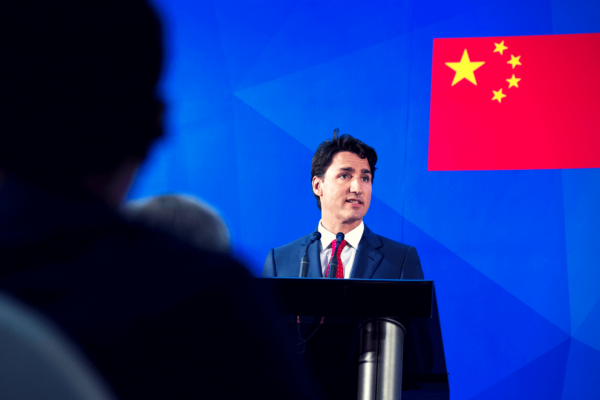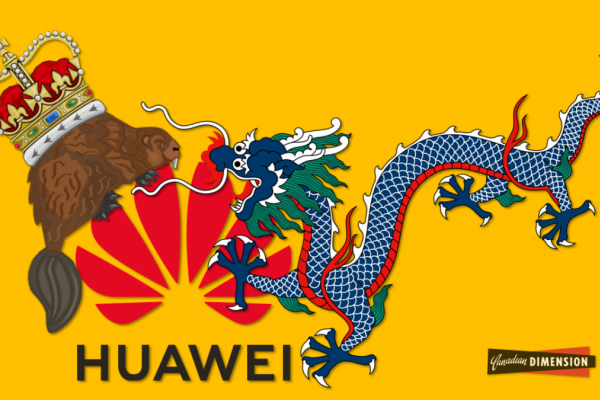Does the NDP want conflict with China?
New Democrats are recklessly promoting measures that will ratchet up tensions between Ottawa and Beijing

Does the NDP want conflict with China? Party officials would deny it, but they are promoting measures that will ratchet up tensions between Ottawa and Beijing.
In recent weeks the New Democrats have jumped on the ‘China interference’ bandwagon. In dozens of recent statements, Jagmeet Singh, Heather McPherson, Peter Julian, Alexandre Boulerice and others have hyped the issue, leaning dangerously into nationalism and xenophobia.
After Global News journalist Sam Cooper reported a CSIS leak claiming that Liberal MP Han Dong lobbied the Chinese consular-general in Toronto to hold off on freeing Michael Spavor and Michael Kovrig, Singh called for Dong to be expelled from the Liberal caucus.
“These are extremely serious allegations,” the NDP leader tweeted. “If true, the safety of Canadians was put at risk for political gain. Prime Minister Trudeau must remove Han Dong from Caucus and these allegations must be thoroughly investigated. There must be a public inquiry.”
These are extremely serious allegations.
— Jagmeet Singh (@theJagmeetSingh) March 22, 2023
If true, the safety of Canadians was put at risk for political gain.
Prime Minister Trudeau must remove Han Dong from Caucus and these allegations must be thoroughly investigated.
There must be a public inquiry. https://t.co/xoRGqjIKRF
Cooper’s incoherent and often contradictory reporting is unlikely to be true. Even notoriously anti-China Globe and Mail reporters Robert Fife and Steven Chase refused to publish the allegations. Han is now suing Global for defamation.
The NDP is demonstrating a remarkable level of trust in leaks from an intelligence agency that lied about Maher Arar, Abousfian Abdelrazik and many others. The party also amplified a spurious RCMP announcement regarding Chinese-Canadian community groups in Montréal.
In response to the RCMP announcing an investigation into the Service à la Famille Chinoise du Grand Montréal and the Centre Sino-Québec de la Rive-Sud for allegedly operating as covert police stations for the Chinese government, NDP deputy leader Alexandre Boulerice told the press in French, “How come there can be agents of a foreign state who come here to intimidate, maybe threaten? I think there is no country in the world, no democracy in the world, that can accept that.”
Ten days ago, dozens rallied in Montréal’s Chinatown to defend the targeted organizations and condemn the police for stoking anti-China sentiment by publicly announcing an investigation into the community groups which have provided resources to Chinese and Asian citizens for decades. Both organizations vehemently deny the allegations, writing in a statement that, “To assume [we] are guilty in the current factual vacuum could cause irreparable damages.”
Regrettably, the NDP’s anti-China posture isn’t new. The party’s 2021 election platform declared, “a New Democrat government will stand up to China with a strong and coherent strategy to defend Canadian interests at home and abroad. We will work with our allies to lead a robust and coordinated international response to China’s disregard of the rule of law.” China was the only country mentioned in its foreign policy statement aside from Israel-Palestine and it received one of 12 paragraphs towards the top of the statement (Palestine was near the bottom).
New Democrats have needlessly escalated their anti-China rhetoric in other ways. Last year they pushed the Liberals to ban the world’s largest 5G network provider, Huawei, from building its cutting-edge broadband in Canada. On two separate occasions, NDP MPs voted to declare that China was committing genocide against Uighurs (there are credible charges of human rights abuses against Uighurs, but most experts concur those do not constitute genocide). The party also supported a diplomatic boycott of the February 2022 Beijing Olympics. Singh suggested Canadian athletes could be in danger if they participated. NDP MPs have also called for sanctions on Chinese officials.
Alongside reinforcing the notion that China is a de facto adversary, the NDP openly supports a militarized containment policy in the Asia-Pacific region. Three months ago the party lauded the Liberal’s Indo-Pacific Strategy as a “step forward,” saying it will “counterbalance China’s disruptive power.”
The Indo-Pacific Strategy—which has been described as “a strident polemic, not diplomacy“—outlines how Canada will “augment its naval presence, including by increasing the number of frigates deployed to the region where it will conduct forward naval presence operations.” Half-a-billion dollars is allocated to bolstering Canada’s military and spy network in the region.
NDP statements and votes on China should be viewed within a context of heightened Western brinkmanship with the world’s emerging superpower. Six weeks ago, four-star US Air Force General Mike Minihan told his troops that the Western-led economic war against China is likely to turn into a shooting conflict, probably over Taiwan, within two years. In its recent budget the US allocated $10 billion over five years in arms to Taiwan.
According to a report in the BBC, “the US has secured access to four additional military bases in the Philippines—a key bit of real estate which would offer a front seat to monitor the Chinese in the South China Sea and around Taiwan. With the deal, Washington has stitched the gap in the arc of US alliances stretching from South Korea and Japan in the north to Australia in the south. The US has over 100,000 troops stationed around China.”
At the end of October the head of the Canadian military, Wayne Eyre, told Parliament that China and Russia consider themselves at war with the West. Two weeks later he added that those two nations will increasingly challenge Canada’s “tenuous hold” over its territory in the Arctic. Simultaneously, Eyre called for industry to be placed on “wartime footing” and for military planners to prepare for a Second World War-style conflict.
Rather than putting the brakes on America’s bid to contain China’s rise, the NDP has repeatedly pushed the Liberal government to take a more belligerent stance, jumping into bed with the neoconservatives in Washington whose main concern is US primacy in global affairs—even if it means full-scale war.
Is this the NDP’s endgame as well?
Yves Engler has been dubbed “one of the most important voices on the Canadian Left today” (Briarpatch), “in the mould of I.F. Stone” (Globe and Mail), and “part of that rare but growing group of social critics unafraid to confront Canada’s self-satisfied myths” (Quill & Quire). He has published nine books.










